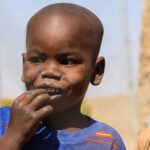Indigenous education can simply be defined as the aggregate of the process by which a child or youth acquires community cultural knowledge, skills, attitudes, values, beliefs, norms and habits that are beneficial to him and necessary for the survival of the society and are transmitted from one generation to another. In the absence of any form of script or writing, learning is done orally.
Examples 1. Greeting is one of the practices in African culture. It is customary for younger people to greet elders first. So, our youths must not do away with this tradition. 2. Always say “Thank you” to anyone who does some service to you no matter how small. Show appreciation for everything given to you, say “Thank you, I appreciate it”.
- 3. Be disciplined. A blooming youth with promising future always has a touch of sensitivity and refinement in manners, speech and decorum. Therefore, in your speech, do not shout. Gently say what you want to say, dress well and have a sense of direction and purpose, don’t gossip. If you have nothing good to say about somebody or something, don’t say anything evil about that person.
Avoid fake news and don’t gossip in the social media which is now a common phenomenon.
Be polite, learn to say excuse me; learn to wait for your time, clean yourself and environment, be honest, prayerful, generous, obedient, and refrain from anger. Be patriotic and nationalistic. Obey constituted authority, avoid thuggery.
Sumaila Rabiu Adjoto, Edo State 081642109**

 Join Daily Trust WhatsApp Community For Quick Access To News and Happenings Around You.
Join Daily Trust WhatsApp Community For Quick Access To News and Happenings Around You.


